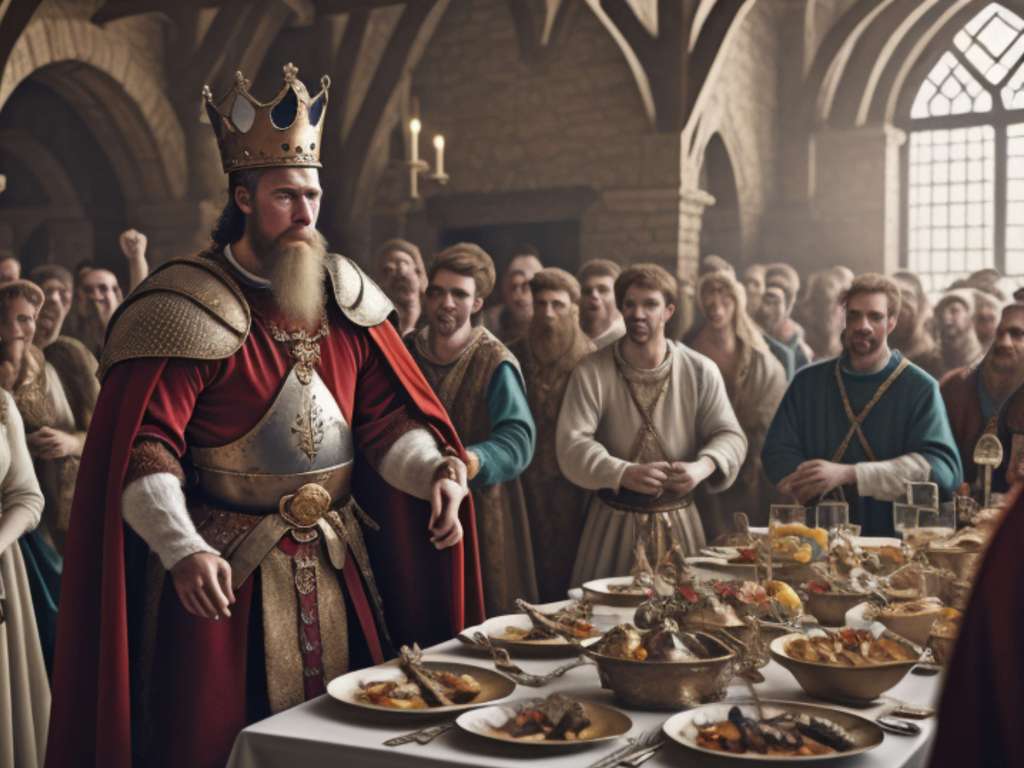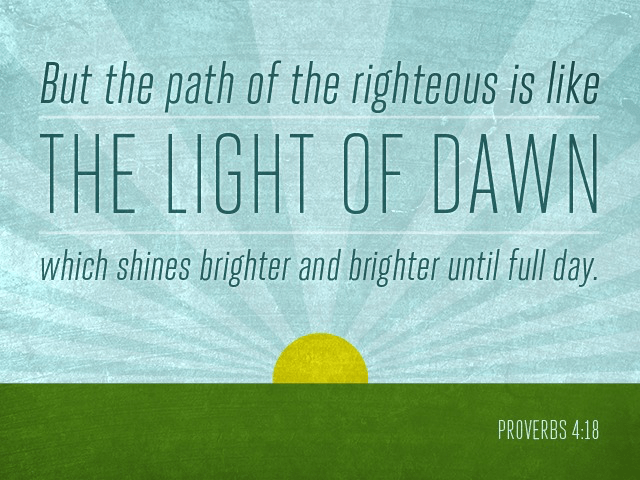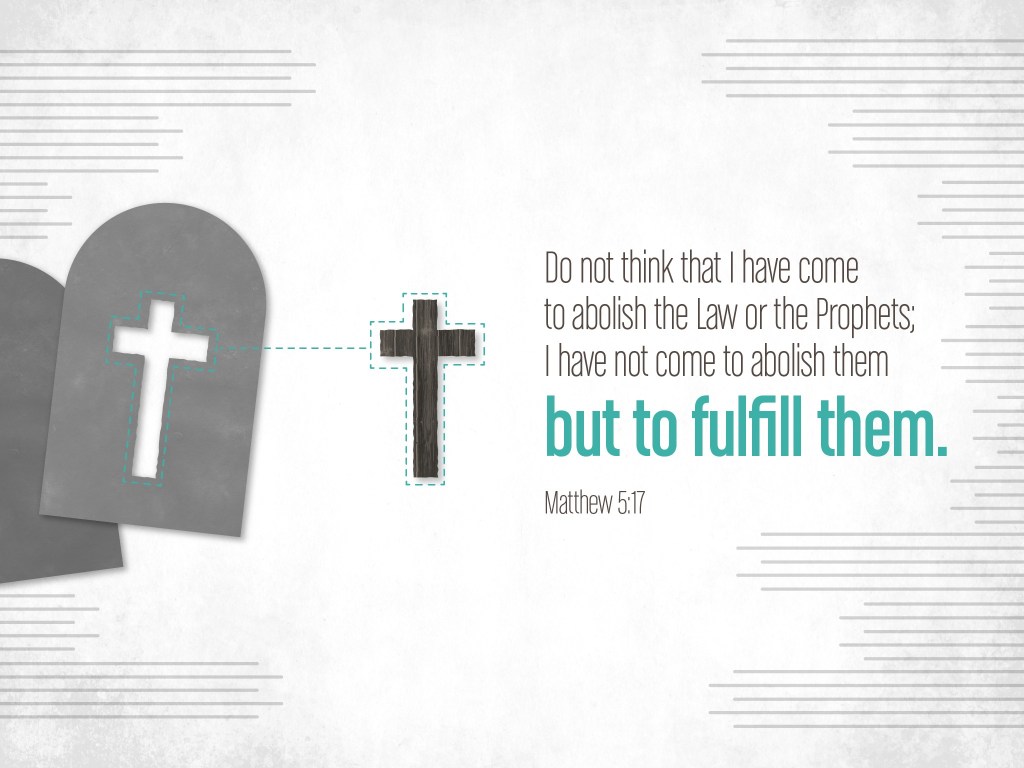
John 16:5–15
5 “But now I am going to him who sent me, and none of you asks me, ‘Where are you going?’ 6 But because I have said these things to you, sorrow has filled your heart. 7 Nevertheless, I tell you the truth: it is to your advantage that I go away, for if I do not go away, the Helper will not come to you. But if I go, I will send him to you. 8 And when he comes, he will convict the world concerning sin and righteousness and judgment: 9 concerning sin, because they do not believe in me; 10concerning righteousness, because I go to the Father, and you will see me no longer; 11 concerning judgment, because the ruler of this world is judged.
12 “I still have many things to say to you, but you cannot bear them now. 13 When the Spirit of truth comes, he will guide you into all the truth, for he will not speak on his own authority, but whatever he hears he will speak, and he will declare to you the things that are to come. 14 He will glorify me, for he will take what is mine and declare it to you. 15 All that the Father has is mine; therefore I said that he will take what is mine and declare it to you.”
Alleluia! Christ is risen!
He is risen indeed! Alleluia!
In the name of Jesus. Amen.
Our expectations rarely match reality. Often times, it’s not even close. When I was 15 years old, I was eagerly anticipating being in a sailboat race across Lake Superior in July. Thanks to Gordon Lightfoot, I knew that “gales of November” don’t come that early. My expectations for that race were largely shaped by movies of majestic boats efficiently gliding across rolling waves driven by strong winds. But I also worried that there would be 10-15 ft. swells that would toss our 25 ft. boat around like a leaf making me seasick and struggling to stay on the boat. The reality ended up being two and a half days of cold, drizzling rain, and barely a whisper of wind, and the only thing that made me sick was the inescapable fumes of fiberglass varnish which sent me and the other crewmembers to the side of the boat more than once.
We plan and prepare for things to be a certain way, but then the moment or event comes and is completely different than what we imagined. Sometimes, the reality is better; sometimes, it’s worse; and sometimes, it it’s just different. As a kid, you probably expected that being an adult would come with the independence and freedom to do whatever you wanted whenever you wanted. Then, reality came. Now, you realize being an adult can mean the autonomy to do what you want, but most often it means carrying out the responsibilities God has given you. Even if adulthood isn’t the total freedom and independence you thought it might be, it’s still very fulfilling.
In this Gospel reading, we don’t know exactly what the disciples expected as Jesus talks about His departure and going away to the Father. We just know their reaction – they are sorrowful (Jn. 16:6, 20, 22). They don’t know what to expect. That’s why Jesus comforts them and us by teaching about the Holy Spirit.
The first thing we need to get straight is that, when Jesus says that He has to go to Him who sent Him and that it is to their advantage that He goes away, He doesn’t mean that He is going to be completely absent. Jesus had already promised His abiding presence. He guarantees, “Where two or three are gathered in My name, there am I among them,” (Mt. 18:20), and before He ascends into heaven He says, “Behold, I am with you always, to the end of the age” (Mt. 28:20). Yes, Jesus has gone to the Father who sent Him, but He is also truly, physically present with us – especially in Holy Communion. When Jesus says that He is departing, He is saying that He must go to the cross, pay for our sins, and ascend into to heaven where He continually presents His work on your behalf to God the Father (Heb. 9:24; Ro. 8:34).
That’s the reason Jesus is departing. It isn’t that He’s leaving and is gone. No. His departure is the fact that He goes to work your salvation, and to continually present His work to God the Father. Christian, your life is hidden with Christ where He is seated (Col. 3:1-4). That’s why the Holy Spirit comes. The Holy Spirit is constantly present with you to be your Helper, Advocate, and Comforter constantly pointing you to all the things Christ has done for you. The Holy Spirit comes to point you to all the benefits that Jesus’ death, resurrection, and ascension give you. The Holy Spirit comforts you with the gifts of Jesus.
That is why we need Jesus’ teaching here about what the Holy Spirit does. So many Christians have wrong expectations about the Holy Spirit. Throw out all of those expectations and listen to what Jesus teaches about the Holy Spirit’s work. The Holy Spirit works to convict us concerning sin and righteousness and judgment. And don’t get put off by that word ‘convict.’ Most of the time we use the word ‘convict’ today, it means to find guilty. And when Jesus talks about the Holy Spirit convicting concerning sin and judgment, we tend expect this will be a bad thing. But being convicted isn’t always a bad thing.
We will talk about a person having deep convictions, meaning they are sure and certain about what they believe. They are convinced of the truth of something. That’s how we should understand this as Christians. Jesus goes on to summarize the Holy Spirit’s work as guiding us into all the truth. The Holy Spirit is guiding us to be convinced of certain things concerning sin, righteousness, and judgment. When Jesus tells us why the Holy Spirit convicts or convinces of each of these things, each of the why’s isn’t what we naturally expect. Let’s take each of these in order.
First, when Jesus says that the Holy Spirit will convict the world concerning sin, we would expect Him to say the Holy Spirit does that because you people are so bad and evil. But that’s not what Jesus says. The Holy Spirit convicts the world concerning sin because they do not believe in Jesus. I’m guessing Paul had these very words of Jesus in mind when he wrote in Ro. 14:23 that says, “whatever does not proceed from faith is sin.” In other words, you can do the best, most merciful work, but apart from faith in Jesus, it is of no benefit; in fact, Scripture says the mercy of the wicked is cruel (Pr. 12:10). Confessing your sins is an article of faith. It is the Holy Spirit who has taught us to confess that we are by nature sinful and unclean in thought, word, and deed. And the Holy Spirit guides us to continue our confession by saying that we flee for refuge to God’s mercy freely given through Christ.
Second, when Jesus says that the Holy Spirit will convict the world concerning righteousness, we would expect Him to say, “Because they don’t have any righteousness and need to do better.” But that’s not what Jesus says. The Holy Spirit convicts concerning righteousness because Jesus goes to the Father. When you consider this in the context of the rest of Scripture, this is stunning. The Man Jesus has opened the path to heaven so you can follow Him and be brought there too by the working of the Holy Spirit.
Imagine being in a line waiting to stand before God’s judgment. How would you feel as you wait in that line? Probably pretty nervous – especially because that judgment will determine where you will spend eternity. But now imagine that you’re standing in that line and Jesus is standing right next to you waiting for His turn to be judged. Do you think He would be nervous? No, Jesus isn’t going to be worried at all! He’s confident and knows He is perfect and hasn’t committed any sins. Well Christian, you need to know, you need to be convinced, that through faith you occupy Jesus’ place in that line. His righteousness is yours. God made Jesus, who knew no sin, to be sin, so that in Him you would become the righteousness of God (2 Cor. 5:21). To believe that takes the working of the Holy Spirit.
Third and finally, the Holy Spirit convicts concerning judgment. We would expect this is needed because judgment is coming. Again, that’s not what Jesus says. The Holy Spirit convinces you that the ruler of this world, Satan, is judged. Think of that! Satan, which means accuser, is the one who is judged. The one who tries to accuse you before God has absolutely zero credibility in God’s courtroom. The devil isn’t losing; he has lost. Satan is utterly defeated and conquered. Yes, this takes faith. But the Holy Spirit will continue to point you past what you may see in this world back to these words of Jesus which clearly state that the devil is judged.
Sable, that brings me to you. Sable, today you are Baptized. God has placed His name upon you, claimed you as His own, and has given you Jesus’ righteousness. And from this day forward, the Holy Spirit will continue to guide you into these truths and convictions, convincing you of your sin so you will believe in Jesus. Convincing you of the righteousness you have been given. And convincing you of the judgment of the devil.
Sable, and all of you here, it’s hard to know what to expect for your future. But know this: the Holy Spirit will continually guide you into all the truth, convicting and convincing you that Jesus’ work for your salvation is perfect, complete, and finished. Amen.
Alleluia! Christ is risen!
He is risen indeed! Alleluia!
The peace of God, which surpasses all understanding, will guard your hearts and minds in Christ Jesus. Amen.








 I have to confess, as I was doing my devotions this week, even when I had this sermon running through my mind, I got uncomfortable with some of the punishments God commanded for certain sins. But God does not owe us an explanation for His anger and wrath.
I have to confess, as I was doing my devotions this week, even when I had this sermon running through my mind, I got uncomfortable with some of the punishments God commanded for certain sins. But God does not owe us an explanation for His anger and wrath. Remember, I told you that this sermon was going to be an explanation of that sentence in v. 25, “This was to show God’s righteousness, because in His divine forbearance He had passed over former sins.” What is it that showed God’s righteousness in giving us mercy? Nothing but Jesus Christ. Nothing but Jesus shedding His blood and dying on the cross. Nothing but Jesus being our propitiation – the atoning sacrifice, the mercy seat, the place where God forgives us and meets with us sinners.
Remember, I told you that this sermon was going to be an explanation of that sentence in v. 25, “This was to show God’s righteousness, because in His divine forbearance He had passed over former sins.” What is it that showed God’s righteousness in giving us mercy? Nothing but Jesus Christ. Nothing but Jesus shedding His blood and dying on the cross. Nothing but Jesus being our propitiation – the atoning sacrifice, the mercy seat, the place where God forgives us and meets with us sinners.
You must be logged in to post a comment.